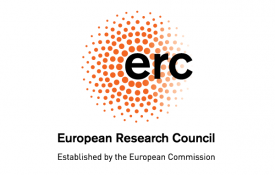-
Five APS Fellows Elected to Society of Experimental Psychologists
A Guggenheim Fellow and a co-founder of a widely influential psychological theory are among four APS Fellows newly elected to the Society of Experimental Psychologists (SEP), the oldest and one of the most prestigious honorary societies in scientific psychology. APS Fellows Diane Beck, Charles Brainerd, Steve Sloman, Joshua Greene, and Fei Xu, along with three other psychological scientists, have been selected as 2020 SEP Fellows. In addition, Vanderbilt University researcher Jennifer Trueblood, named an APS Rising Star in 2015 and a 2020 APS Janet Taylor Spence Award recipient, is receiving the SEP Early Investigator Award.
-

ERC Consolidator Grants Offer €600 Million to European Scientists
The European Research Council (ERC) has announced the winners of its Consolidator Grant competition. A total of €600 million was awarded to 301 researchers from across Europe. The Consolidator Grant allows scientists to establish research teams and continue their career at an EU institution.
-

NSF Funding to Support Transition From New Research Discoveries to Innovation
The National Science Foundation (NSF) offers researchers the opportunity to transition their research from discoveries to the marketplace through the Partnerships for Innovation Program (PFI).
-

NIH Funding for Studying Effectiveness of Evidence-Based Mental Health Treatments
This opportunity seeks to improve the delivery of those evidence-based mental health services to low-resource areas through the findings of the funded projects.
-
Aus Fehlern lernen? Da gibt es ein Problem
Den Spruch „Aus Fehlern lernt man“ hören wir unser Leben lang – von Kollegen, Familie, Freunden. Dass das stimmt, zweifelt eine Studie an: Nach eigenen Fehlern setzt vor allem ein Mechanismus ein. ... Von allen Seiten wird eine „Kultur des Scheiterns“ gefordert. Dabei tun uns Fehler überhaupt nicht gut - ganz im Gegenteil, zeigt eine Studie von Lauren Eskreis-Winkler und Ayelet Fishbach von der University of Chicago. „Unsere Gesellschaft feiert das Scheitern als lehrreichen Moment“, schreiben die Psychologinnen in dem Paper, das im Fachblatt Psychological Science veröffentlicht wurde. Das Ergebnis aus fünf Experimenten bietet jedoch eine andere Realität: Scheitern hemme den Lernprozess.
-
What to Do About an Overtalker
Maybe the person sits near you at work. Maybe he or she is your second cousin-in-law, your Hinge date or your seatmate on a 19-hour flight to Sydney. Most of us have met a compulsive talker: A person who dominates discussions with nonmeaningful chatter and misses, or ignores, cues that listeners are scanning for the exit. It’s tempting to believe, when cornered by such a chatterer, that a chronic talker is a selfish egotist. Yet, it is often the opposite. Research has linked overtalking to anxiety, attention deficit disorder, being on the autism spectrum or to compulsive behavior on the lines of shopaholism or workaholism. ...

